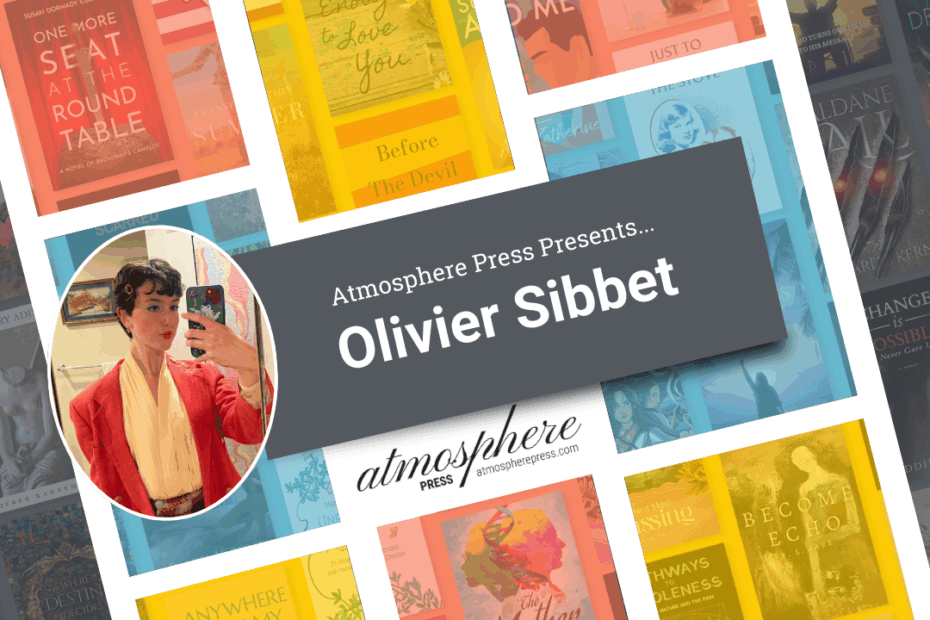An Interview with Olivier Sibbet

Olivier is a writer and cosmopolitan thinker working in San Francisco. She is committed to humanistic perspectives and the importance and power of the narratives we share. Olivier won the 2023 Hicks Prize in Fiction, and has been featured in The Lawrentian newspaper.
What inspired you to start writing this book?
I started this project ten years ago. There is something about it that keeps me coming back, wanting to see where these people go, what they do and how they feel about it. My first inspiration was disgust at seeing romanticized violence in all media marketed to women. I found it in myself, and wanted to peel back the layers of what that means not just for fiction as a form, but for the lived experience of individuals. In my work I am trying to tackle the heady emotions of adolescence, both indulging in that melodrama and reckoning with its effects. My youth was chaotic and troubled, and I have found use for those experiences, catharsis in transforming them, and humor in their idiosyncrasies.
Tell us the story of your book’s current title. Was it easy to find, or did it take forever?
“The Bay” is a title I am not quite set on, STILL. The project started as “Of Lungs and Lips,” which was a popular title format at the time. Currently, I do like the progression of “The Bay,” “The Sea,” and “The Ocean.” Still, I think the title will land somewhere else, when I am better able to charmingly crystalize my own work.
If your book had a soundtrack, what are some songs that would be on it?
I have playlists galore trying to tackle the vibe. Here’s some true tunes:
“Blame” (Gabriels)
“Dark Red” (Steve Lacey)
“Lavender Haze” (T. Swift)
“A Near Death Experience” (Hellogoodbye)
“Snow” (Ricky Montgomery)
“Vampire Empire” (Big Thief)
“Back in the USSR” (The Beatles)
“Devotion” (The Staves)
“Too in Love to Die” (Julia Jacklin)
What books are you reading (for research or comfort) as you continue the writing process?
I can’t read enough fast enough! I have just finished The Great Believers by Rebecca Makkai, and it was the perfect book for this chaotic time. I also completed Their Borders, Our World, edited by Mahdi Sabbagh. That collection of essays has been transformative. I have started Crime and Punishment, and am planning to read the Quran after that.
I am a strong believer that to be a good writer, you must be a good reader—read widely, read diversely, read against your type. Every story I am lucky enough to encounter teaches me anew, and strengthens the realities around me, my values, soul-desires, and connection to my fellow human beings.
What other professions have you worked in? What’s something about you that your readers wouldn’t know?
I am currently an Administrative Assistant. I have worked in food service extensively, as well as education, and enjoyed my time in non-profits and lab work as well. I hope and dream and plan to go back to school and pursue a higher degree in Psychology, ideally to start a practice.
Who/what made you want to write? Was there a particular person, or particular writers/works/art forms that influenced you?
I have always been a desperately embarrassing storyteller. I was lucky to have an encouraging grandmother, who herself was a writer and poet, and my father, who would recite folk tales to me at bedtime. The stories and structures they gave me are bone deep, and my most beloved instincts. I am so grateful to have had their expertise and insight at a young age. Baba Yaga, often featured in my father’s stories, tends to show up in everything I write.
Writing and storytelling are just things I have to do, like breathing. The artists whom I admire most are those who touch me on a profound level. Alice Walker, Jane Austen, Karolina Pavlova, Marilynne Robinson, Emily Brontë, Toni Morrison—these people have reached into me and taken my very being into their hands. That transformative, reflective, soul-touching is what I hope to accomplish. Where my audience will read, and even if it is nothing like they have ever experienced, they will say, “this is just like me.” That is what I am most grateful for in stories.
Where is your favorite place to write?
I tend to do my most work in cafes and libraries. There is something about being around a lot of other people, with a tasty little drink and a nice view. Looking at water and nature also helps me get into flow.
What advice would you give your past self at the start of your writing journey?
Just go for it. If you like it that much, no matter what you’re writing (yes, even that), it is important that you do. I am sorry you thought you had to wait so long to deserve what you love so much.
What’s one thing you hope sticks with readers after they finish your book?
That they aren’t alone. My characters are fundamentally isolated, as I think many global citizens are. There are opportunities for connection that pass them by, and no one can ever tell whose fault it was in letting them go. Ultimately, my characters are all reaching for the same things, but are afraid or unaware that they are allowed to have them. I want my readers to have it. I also want them to laugh a lot, be entertained, and get swept up in the emotion of it all.
Are you a writer, too? Submit your manuscript to Atmosphere Press.

Atmosphere Press is a selective hybrid publisher founded in 2015 on the principles of Honesty, Transparency, Professionalism, Kindness, and Making Your Book Awesome. Our books have won dozens of awards and sold tens of thousands of copies. If you’re interested in learning more, or seeking publication for your own work, please explore the links below.
